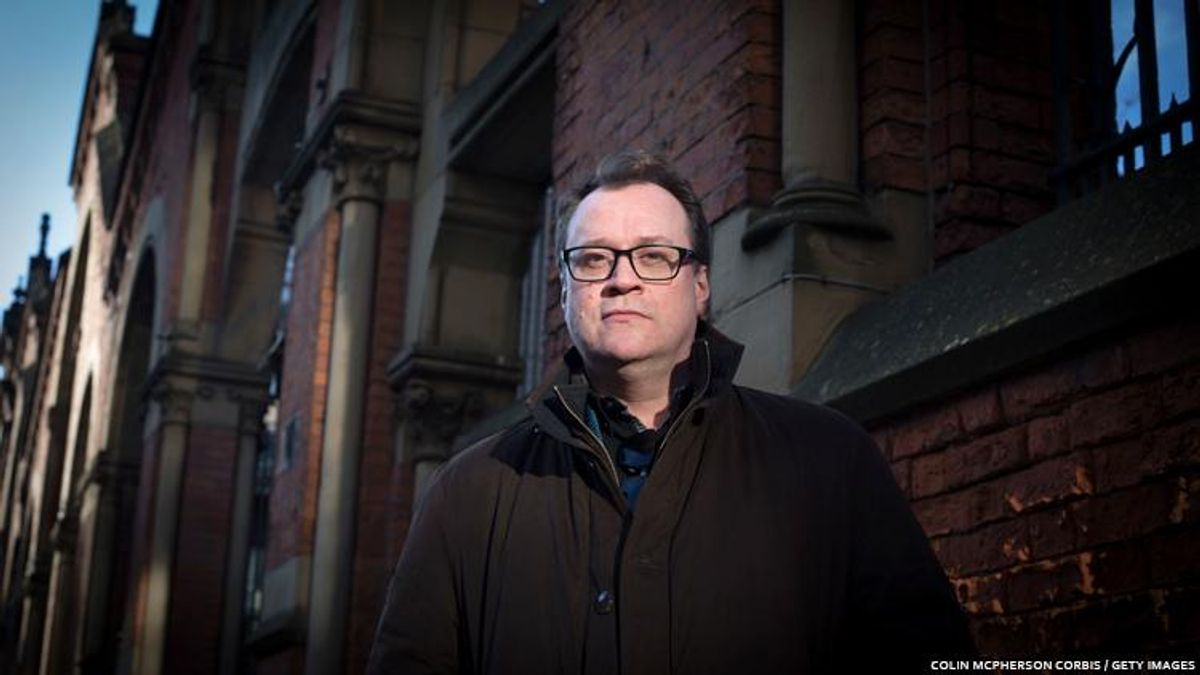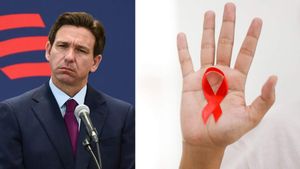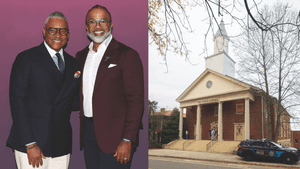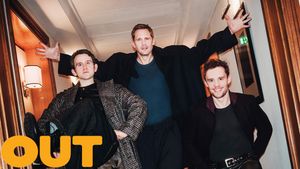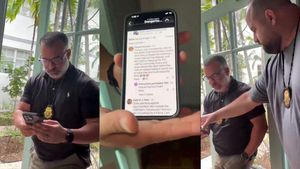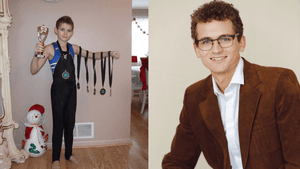Russell T Davies’s highly anticipated new series, It’s a Sin, is set to premiere on HBO Max in the new few weeks — and now the veteran screenwriter, author, and television producer is opening up about why it took him over four decades to finally revisit those early dark days of the HIV epidemic.
In a personal essay he recently penned for The Guardian, Davies recalls a time of suffocating stigma, misinformation, and insurmountable pain. For many — even those, like the gay Davies, whose own communities were being devastated — the only way to stay sane after a while was to simply look away. “The stigma and fear of AIDS was so great that a family could go through the funeral, the wake, and then decades of mourning without saying what really happened,” he wrote.
“It’s hard to look back and reconstruct how information was spread in those early days, ’81, ’82, before the tabloids got hold of the story,” continued Davies. “Rumours. Mutterings. Whispers from America. Chat in the dark corners of pubs. A few brave activists photocopying what little information they had; the photocopied sheets you ignore when out clubbing. I can remember the exact moment I took it seriously for the first time. June 1983…. I stared at the headline. ‘AIDS Gay Death-Plot Panic.’”
But as the epidemic grew closer and closer to home, Davies admits he often couldn’t face its harsh realities “There are boys whose funerals I didn’t attend. Letters I didn’t write. Parents I didn’t see. It’s said that ignorance kills. But sometimes we die because we’re so bloody smart.”
However, he also reminds us that during those days, stigma, fear, and ignorance around HIV prevailed — and the cruelty of others kept many silent, even as allies. In his essay, Davies recalled a specific incident that helped illustrate this horrific reality: “I can remember seeing a joke I won’t repeat about dead gay men on a noticeboard at work, in an advert for the Christmas charity raffle. And no one complained.”
“I certainly didn’t,” Davies added. “I just keep my head down and let it happen around me. History is written by the activists—I look with awe at the fury which drove Larry Kramer…. But me? I looked away. Oh, I went on marches and gave a bit of money and said how sad it was, but really, I couldn’t quite look at it. This impossible thing…. Late last year, I bumped into the father of a good friend who’d died in 1992. We chatted, politely, hopelessly, and I flailed around, wondering how to apologize after all this time for not going to the funeral. But then I realized it hardly mattered. No one went. The shame had been so great that they only had 25 people for a lovely, lively lad, dead by 28.”
Over the decades that followed, Davies became a successful screenwriter and TV producer and says that eventually, the subject of pain and peril which he had avoided for so long began to crop up in his work.
“I stayed busy, looking away, but I suppose I also looked down. At the keyboard. And stories began to emerge in my work. Rising up. Bleeding through the page. In 1994, I created a 15-year-old HIV+ teenager for Children’s Ward at Granada Television. Then…I came to invent Queer as Folk in 1999. Britain’s first gay drama. And the words HIV and AIDS were said… not once.”
“That was quite a press launch,” he added, remembering the controversy surrounding his decision to omit HIV altogether from the groundbreaking LGBTQ+ series. “The rage, the shouting! Two hundred journalists in full pomp. The straight press were as hostile as you’d expect, but the gay press were especially furious because we had no condoms, no warnings, no messages on screen. Well, yes, tough. Because by that stage, in 1999, I refused to let our lives be defined by disease. So I excluded it on purpose. The omission of AIDS was a statement in itself, and it was the right thing to do.”
Fast-forward to today, with Davies about to premiere It’s a Sin, his new series centered on the earliest days of the HIV epidemic in early-80s queer London.
“Finally, I came to write a show with AIDS center stage,” continued Davies in The Guardian essay. “I think I had to wait till now, to find what I wanted to say…. But I needed to slalom my way around this stuff, to find my own path.”
“But the fight goes on. The stigma still exists,” he concluded, explaining why conversation and different narratives around HIV are still vitally needed today as much as ever. “Today, I’m honored to be patron of the George House Trust in Manchester, and the staff tell stories every day of the same old ignorance and fear. Just last month, a friend of mine was attempting to adopt a child and had his HIV status mentioned in court, for no good reason, three times. And in 2019, the rugby star Gareth Thomas was forced to reveal that he’s HIV+ after a tabloid reporter doorstepped his parents and told them his status.”
It’s a Sin, starring a brilliant cast that includes Neil Patrick Harris, Olly Alexander, and Stephen Fry, premieres in the next few weeks on HBO Max and Channel 4 in the U.K.
